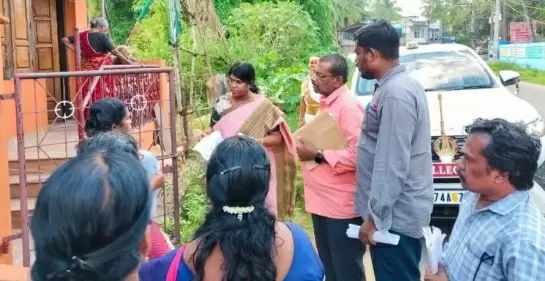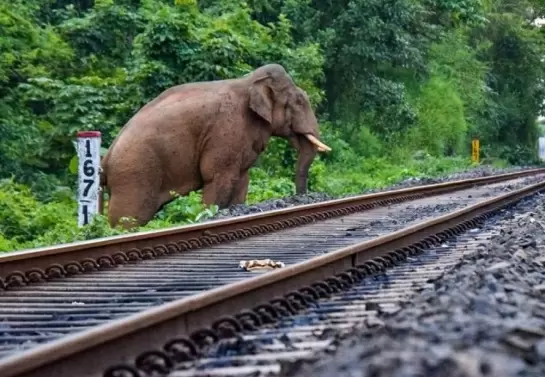Lucknow loses almost half its water bodies to builders
08-July-2019
With rapid urbanization changing the skyline of Lucknow, the state capital has also lost 46 per cent of its water bodies. Most of them are also polluted with waste and sewage.
The state government and the Supreme Court have made various interventions to stop instances of land-grabbing and construction over water bodies but the situation remains beyond control.
Officials are unwilling to speak on the issue since encroachment, invariably, has the backing of political leaders. The District Magistrate also did not respond to calls.
According to a survey conducted by the Lucknow Municipal Corporation, there were a total of 964 ponds in the city in 1952.
The number declined to 494 in 2006.
Land records of the municipal corporation state the city has 964 tanks and ponds, a majority of which are now unidentifiable due to reclamation.
In the Sarojini Nagar area, where 14 water bodies have been encroached upon, Samajwadi Party leader Sharda Pratap Shukla is said to be a "big fish". Some of his illegally- constructed buildings were demolished but reappeared months later.
"Each time we try to demolish the encroachments, we face tremendous political pressure and the matter is laid to rest," said an official of the Lucknow Development Authority (LDA) who did not wish to be identified.
In 2006, the Supreme Court had said that the protection of natural lakes and ponds honours the most basic fundamental right - the right to life - which is guaranteed under Article 21 of the Constitution.
But Lucknow's official records reveal a grim picture.
Ponds and pools, which act as a sponge and thermo-regulators, help in the accumulation of rainwater and enhance the groundwater level in the area. But water bodies in Lucknow's core urban area have become largely extinct. This has made it vulnerable to severe flooding in the future. The state capital has already reported four major flood events in the past decade.
The situation of the Gomti River is at its worst today. The Gomti is a groundwater-fed river and is replenished by its various tributaries.
According to the Uttar Pradesh Pollution Control Board (UPPCB), the flow of the Gomti has reduced by 35 to 40 per cent over the years. At some points, one can easily cross the river on foot since the water is only waist deep.
The river is at its filthiest along the 13-km stretch in Lucknow and has been declared as the most polluted river stretch in the country by the Central Pollution Control Board (CPCB).
Increased biotic pressure, reduced ecological flow, deterioration of major tributaries, siltation and encroachment of the river's catchment area has left the river dry and filled with sewage and sludge.
Ashok Shankaram, an environment activist from the city, filed a petition against the encroachment of 37 water bodies in the Allahabad High Court in 2014 and the court sought answers from the LDA and the municipal corporation, but received only an elementary reply.
The reply, given in 2015, did not contain any information about concrete steps taken against land-grabbing.
Another PIL in this regard was filed in the high court last week.
Experts say that the situation is getting worse by the day with about 300 water bodies around Lucknow currently undergoing plotting for construction.
Sources say that Uttar Pradesh has lost more than one lakh water bodies (tanks, ponds, lakes and wells) to the hands of illegal encroachment.
The Yogi Adityanath government has not gone beyond providing lip service to the issue and no specific action has been taken to save water bodies from the clutches of land- grabbers. IANS
Bondi Beach Terror Attack: Shooters Sajid-Naveed Identified As Pakistani-Origin Father-Son Duo
Legendary Singer S.P. Balasubrahmanyam's Statue Unveiled In Hyderabad Amid Row
In BJP, Anyone Can Rise From Pasting Posters To National President: Giriraj Singh On Nitin Nabin’s Elevation
Ram Janmabhoomi Movement Veteran Ram Vilas Vedanti No More, Yogi Adityanath Pays Tribute
Rajinikanth Turns 75: Anil Kapoor, Kajol Lead Heartfelt Birthday Tributes









